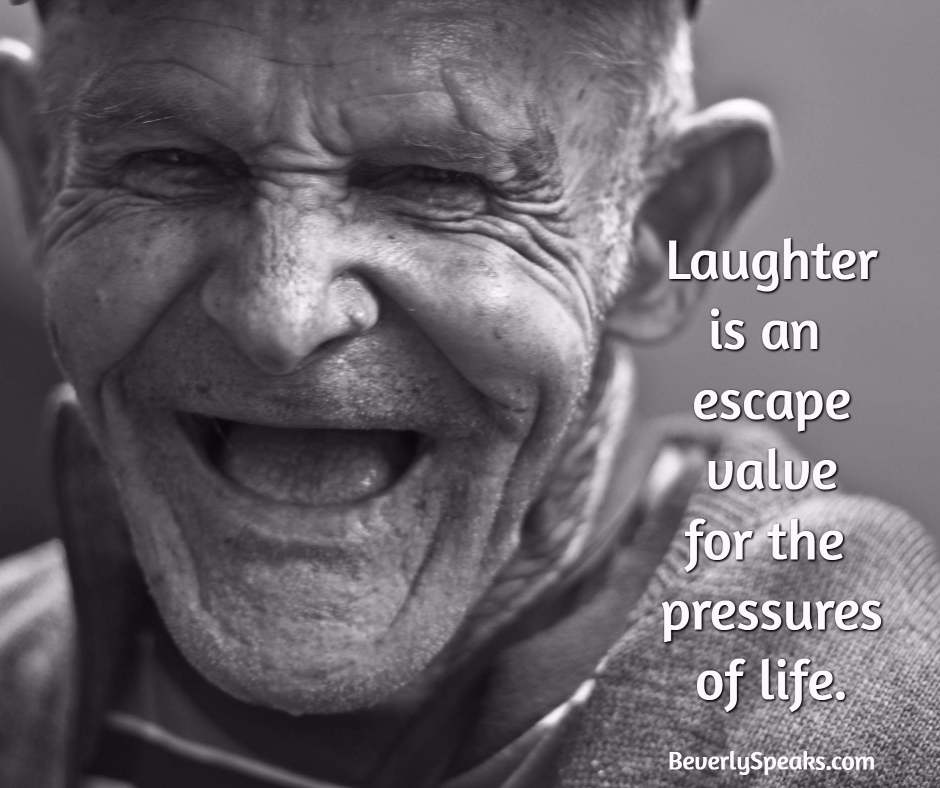The human race has one really effective weapon,
and that is laughter.
-Mark Twain
As the Corona Virus scare has crossed borders and oceans and affected almost every country in the world, we’ve declared war against an invisible enemy. We see the data, take the precautions, and stock up on weapons – in this case antiseptic gel, wipes, spray, and toilet paper. (It’s hard to refrain from commenting about the last item.) How about laughter? Do you have enough of that? It’s a valuable weapon in your arsenal.
It’s easy to think the COVID-19 pandemic is the worst thing that’s ever happened in history. It is a first for the U.S. and it is bad. That said, we’re going to get through this. Some are panicking, some are hoarding, some are planning. And some are taking time to laugh. As serious as this is, with incalculable costs and repercussions – laughter can be helpful.

It’s perfectly normal to use humor as a way to relieve stress. It doesn’t mean you’re an insensitive clod. The field of neuroscience and psychiatry define two areas of involuntary defense mechanisms as “mature defenses” and “immature” defenses. Humor and sublimation are in the mature defense category, while self-mutilation, hypochondria, and neurotic behavior are in the immature category. That might label those as immature defenses, but I call them dangerous and unhealthy. So maybe we should get serious about encouraging laughter.
Norman Cousins, author of An Anatomy of an Illness, will always be remembered for his personal experiment using laughter for healing and pain management. Since that time, there’s an abundance of research on the healing power of laughter. Mayo Clinic attests, “A good laugh has great short-term effects. When you start to laugh, it doesn’t just lighten your load mentally, it actually induces physical changes in your body”.
Laughing in the Face of Death
When my dad died, I recall sitting on the front steps with my sister as the funeral home left with his body. We got tickled and sat there laughing over the station wagon they used instead of the hearse we had expected. To an observer, we might have appeared callous and a little crazy. The reality is, we were grieving deeply and laughter was a like a pressure valve in the moment.
Alex Lickerman, M.D. in Psychology Today states; “perhaps laughter could be most properly considered as a weapon against suffering and despair. If we can joke about a disappointing or traumatic event, we’ll often find ourselves feeling that what’s happened to us isn’t so bad and that we’ll be able to get through it. This expectation serves two vitally important functions: 1) It diminishes or even eliminates the moment-by-moment suffering we might otherwise experience as a result of a traumatic loss, which 2) Actually makes it more likely we will make it through a trauma unmarred and flourish once again”.
If you could eavesdrop on the wisecracks and humor when first-responders, military personnel, emergency room staff, and law enforcement are talking among themselves – you might be appalled at their seeming insensitivity. It’s simply a healthy way they process the stress they deal with daily.
Resilience is the ability to recover following stress, unexpected change, or trauma. It isn’t something you’re born with – though some personalities tend to have more agility in navigating change than others.
Laughter as Medicine
Laughter can be good medicine as we find our way in a world full of suffering. It’s part of developing resilience. Give yourself permission to do some things you really enjoy. A nature walk, a music break, reading a favorite book, and laughing can all help relieve the stress of dealing with the unprecedented challenges presented by COVID-19. Life is better when you laugh. Be well.

